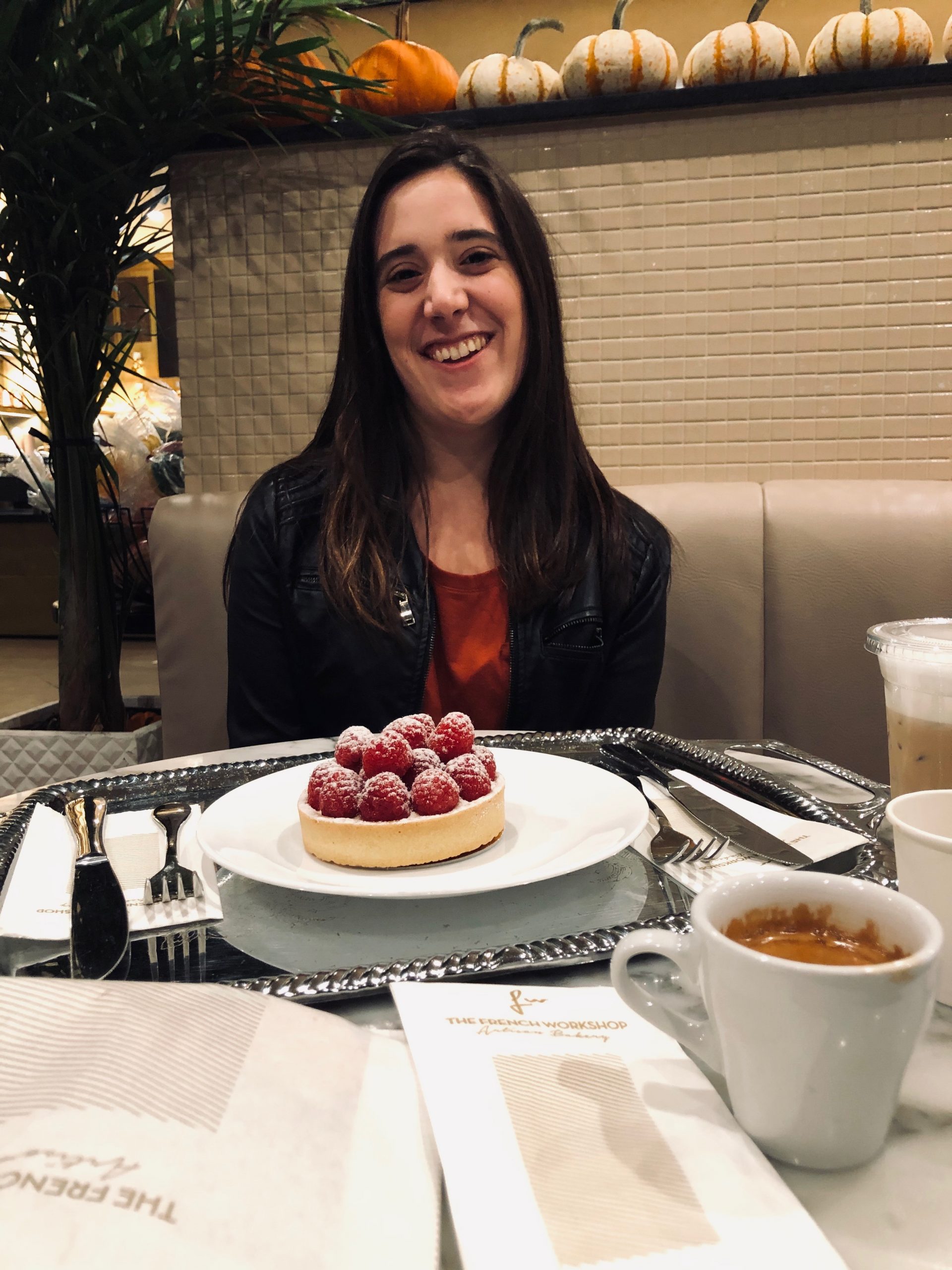It’s finally completed. You’ve spent hours staring at a blank page, willing a thought — any thought — to pop into your overly caffeinated and fatigued brain. You’ve fought to string coherent sentences together, piling image upon image until finally — that poem, short story, play, script, what-have-you — is done. It seemed like you would never get there, after doubting yourself every step of the way. But there it is: a piece of your soul, a child of your imagination, in the flesh.
Now comes the most difficult part: Sharing it with your college writing workshop.
How can you subject this newborn, intimate piece of your soul to the judgment of others who are ready to tear it apart? Understandably, you will experience some jitters. Your legs may shake, your throat may be dry and hearing your piece read aloud to the class presents a torture you never knew was possible.
What will the verdict ultimately be; will your class love it or hate it? Will they be constructive, complimentary or cruel? When you leave that classroom, you will either be on an ego high, soul-crushingly disappointed or unsure of what to even sift from that montage of verbal dissection.
As a senior creative writing major, I have taken a wide variety of workshop classes. One of the toughest realities I’ve had to confront in doing so is that success is not always guaranteed. Sometimes your work will be positively received and other times it won’t.
Nonetheless, college writing workshops are a unique experience that one should not shy away from, whether you’re looking to take one for the first time or have taken dozens. Simply put, learning to express oneself creatively and give and receive feedback is something you won’t learn anywhere else. Taking a creative writing class will ultimately push you out of your comfort zone in the best possible way, ultimately proving itself to be a rewarding experience that will diversify your college career.
Exploring New Skills
Creative writing workshops are one of the most atypical types of academic courses one can take. There is no studying required, no textbooks to buy and zero tests to take. However, the work is more grueling than one might initially expect. Since creativity and expression are so subjective, there is nothing you can be traditionally graded on aside from the effort you put in.
A creative writing class thus teaches a student to rewire their standards of success. Value does not come from the letter grade on a transcript but from an intrinsic sense of accomplishment from putting the work in and earning the praise of peers and professors.
While it may seem daunting, general creative writing classes are by far the best option when it comes to knocking out those pesky Gen Ed English requirements. Ultimately, it is much more fun and liberating to attempt poetry than read a bunch of books and write grueling academic papers.
But a creative writing class is not just a fun and easy way to get by. There is much to be gleaned from the experience if one is willing to put the work in.
Your creative writing workshop class will leave you with a newfound sense of confidence. Not only will it enrich your ability to express yourself — you’ll be simultaneously surprised and proud of your own bravery for putting yourself out there. Not to mention, you may discover a new passion, hobby or possible career path in writing.
Remember To Have Confidence in Yourself
Although confidence is hard to come by under the pressures of a writing workshop, there are ways to build it. Taking pride in everything you turn in and producing quality work will allow you to feel rewarded. Sometimes, just knowing that you put your best effort forward makes the experience worth it, even if the group’s reaction to your piece is not what you expected.
There is no better way to build confidence in one of your pieces than simply devoting time to it.
Devoting time to write does not always mean actually sitting down in front of the computer and forcing yourself to type words onto a page. The pre-writing process is just as — if not more important — than the actual writing itself. Taking the time to think about your idea before writing is a valuable, often overlooked, step in the writing process. Whether done by taking notes on your phone or allowing yourself to stare off into space, this step should not be underestimated as it is a lot tougher to write without first percolating ideas.
Having confidence in your own writing is also key to developing a thick enough skin to handle uncomplimentary feedback or constructive criticism.
It may surprise you to find just how deep some of your fellow students’ comments can cut. More so than any other medium, creative writing often tends to be very personal to the writer. Hearing somebody attack a piece can sometimes feel like a direct attack on the writer, but nothing is ever personal in a workshop setting. Don’t allow such critiques to completely discourage you from writing or bruise your ego.
Learning To Accept Criticism
However, while it is necessary to have confidence in a college writing workshop, don’t shy away from criticism altogether. Obviously, it is a lot easier to hold onto the praise and disregard the critiques, sometimes even subconsciously. However, the point of a workshop is to develop your skills and progress as a writer, so remind yourself to be open to suggestions on your writing. An element of your piece that may be explicit to you is sometimes not so clear to an audience, so try to keep an open mind regarding these points of development in the commentary of your peers.
On the other hand, keep in mind that a lot of what is said in workshops is not always valid. Sometimes criticisms are shared only out of the desire to have something to say. Other times, a fellow student may just be misreading something in your piece. So, where does one learn to draw the line between helpful and unhelpful critique?
As I’ve come to learn, if a suggestion resonated with you and what you were attempting to communicate, sticking out in your mind even after the workshop has concluded, it is worth paying attention to. Otherwise, evaluate if changing or sacrificing something in your piece is actually worth it. Oftentimes, your gut as a writer is the only true compass you should follow.
Critiquing Others
In addition to sharing your own work, creative writing workshops center on commenting on the works of your peers as well. This, too, can be daunting, as it is hard to deliberately upset someone or ridicule their passion project.
To be an insightful critic and a helpful workshop member to your fellow writers, there are a few things to remember in order to formulate comments on someone’s piece.
Remember to always be complimentary of another author’s work. Try, whenever you can, to both start and end your notes on a compliment. It is nice to make your fellow writer feel like their strengths are appreciated.
On the other hand, do not be afraid to be honest when it comes to making suggestions. If something in the piece reads as problematic, let the writer know. If there are points of confusion or blatant holes in the plot of a story someone wrote, it is vital for them to recognize where they can be more explicit with storytelling.
Remember that at the end of the day, everyone is an amateur writer and is participating in workshops with the hope of improving their craft.
Finding Friends and Nemeses in Workshop
Sometimes, college writing workshops can lead to the formation of lifelong friendships — they can even lead to you developing a community of fellow writers on campus and finding a great support system.
But other times, workshops can lead to an unfortunate rise of enemies. Be prepared that not everybody in the workshop is going to like or resonate with your writing — and that’s okay.
Other times, there may be someone in your workshop who continuously puts down your pieces for seemingly no reason. Sometimes bitterness can stem from jealousy or perhaps they don’t appreciate your honest feedback. Needless to say, some workshop members enjoy being the negative voice in the room.
Although it can be difficult, do not let one negative commenter discourage you. If you yourself are somebody who unfairly targets someone else in a workshop because their pieces aren’t your cup of tea, try to reevaluate your words and their effect on others. In a workshop full of people who want to learn to hone an imperfect craft, there is nothing to gain from being derogatory.
It is important to remain unbiased and respect your fellow writers at all times.
Ultimately, if you put the work into your college writing workshop, you are guaranteed to get something out of it — not just pieces of writing you can be proud of but a confidence you may not have known you had. All the hard work and scathing judgments will all be worth it when your piece receives the validation it deserves.
Sharing work with others is scary, but it can actually serve as a powerful motivator to actually write, and actually write well. There is no better feeling than having your hard work, time and devotion reflected in the validation you feel from workshopping it. Additionally, learning where your writing needs further development will help you grow.
Taking a college writing workshop is not only a great way to expand your horizons as a student, but as a writer and a person as well. The stress of the experience will ultimately make your college career more interesting, unique and fulfilling in a way you will not experience in any other type of college class.

















